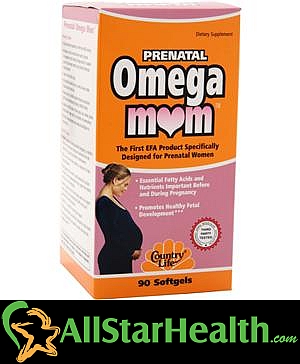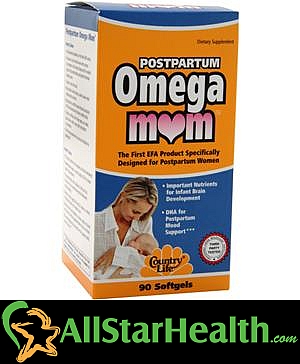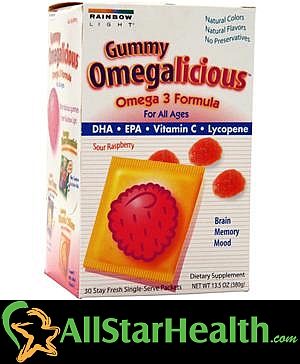Fish Oil Better Than Flax: Especially for Nursing Moms

Kids need DHA for optimal learning and brain development. Fish oils are by far the best source.
A frequently-asked question pertaining to omega 3 fatty acids is whether fish oil or flax oil is better, or whether there’s any difference or benefit to taking one or the other. Vegetarian considerations aside, we do recommend fish oil (here’s our favorite fish oil) and there are in fact significant differences that shed light on why we think so. A new study adds weight to claims that fish oil is better than flax oil, especially so for nursing Moms and infants. Find out why in today’s AllStarHealth bog.
Essential fatty acids are, just like their name suggests, essential nutrients, just like vitamin C or calcium. One category of essential fatty acids is omega 3 (omega 6 is the other).
The omega 3 fatty acids that your body requires are abbreviated DHA and EPA. Both DHA and EPA are extremely important for overall health, but DHA is especially important for learning and healthy brain development. It was probably DHA’s importance for learning and healthy brain development that led this study’s designers to focus on DHA levels in the blood and breast milk in nursing infants, formula-fed infants, and nursing mothers. The researchers investigated the relationship between blood and breast milk levels of DHA and how they were affected by dietary intake of different types of omega 3 nutrients. They found that preformed DHA – as you’d find in a fish oil, not flax or vegetarian sources – performed the best by far.

New mothers need omega 3s like DHA, too. So do old mothers and Dads!
Unless you have a bizarre diet, chances are you’re already getting plenty of omega 6 fatty acids; they’re abundant in meat and dairy fats, and most vegetable and cooking oils. But almost irrespective of your diet, the chances are excellent that you’re getting far less omega 3 than you need for optimal health. Best sources are fortified foods like eggs and milk, certain fish and seafoods, and grass-fed game.
Once you know you need omega 3s, you go online or to your vitamin store and find several different types of supplements whose label identifies them as an omega 3 product. They fall into two main camps, the marine oils like fish oil, salmon oil and krill oil and the vegetarian sources like flax oil, perilla seed oil, and canola oil. The main difference between these two camps is the type of omega 3 they provide.
There are several fats that we could correctly call omega-3s. Of these, there are only two that the body requires and uses nutritionally; DHA and EPA. DHA and EPA are the omega 3 nutrients that you actually need. The others are either precursors like ALA (alpha linolenic acid) or intermediary, temporary forms. These are omega 3-s, but they’re not the ones your body ultimately needs.
And here’s where we find the major difference between fish and marine oils versus vegetarian sources.
A vegetarian source like flax oil gives you only ALA, not the DHA or EPA you ultimately need. ALA isn’t useless – your body can convert a small portion of ALA into DHA and EPA. But the amount that you convert is variable from person to person, and is influenced by gender, age, genetics and other factors. It’s less than half even in the best cases. So at the end of the day you really don’t know how well you’re covering this nutritional base (omega 3s); experts are recommending a minimum of 1000 mg combined EPA and DHA per day. But for vegetarians and vegans flax oil is certainly better than not using anything.
As this study found, ALA – at any supplemental dose – can’t come close to raising blood and breast milk levels of DHA as much as a preformed source like fish oil does. Only fish and marine oils give you preformed DHA and EPA, and preformed DHA is able to raise blood and breast milk levels the highest.
In summary, remember that there are significant differences between marine oils like fish oil (preformed DHA) and flax oil (ALA only). Apart from vegetarian or vegan considerations, fish oil continues to get our recommendation as the best choice of omega 3 supplement for everyone, especially nursing mothers.






